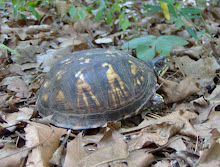Jonathan Balcombe published Pleasurable Kingdom: Animals and the Nature of Feeling Good back in 2006, but I only just got around to reading it. Clifford bought it for me. I have to admit to experiencing mixed feelings upon first holding this book in my hands, and not because of what Balcombe wrote--I recommend this book highly to any animal-lover, armchair natural-historian or biologist--no, my trepidation and annoyance was due to the presence of a forward by Peter Singer, author of Animal Liberation, and apparently mentor to Ingrid Newkirk, founder and president of PETA, and a puff by Wayne Pacelle of HSUS. I had to wonder at Balcombe's taste.
I began by reading the foreward. Singer begins with an anecdote about dolphins surfing (not suffering), and goes on to say, "Despite such experiences--and growing up with a cat who certainly showed she liked being stroked--my focus has always been on animals' capacity to suffer, from the time I started thinking seriously about the ethics of how we treat them." He goes on to say, "But with all this emphasis on animal suffering, I and many others in the animal movement have neglected animals' capacity to enjoy their lives. Fortunately Jonathan Balcombe's book has restored the balance." I think that this book is excellent, thought-provoking, informative and an enjoyable read. I do not think that it has magically restored balance to the animal movement, and I offer as evidence the continued opposition to the No Kill movement of groups such as PETA and HSUS and of their respective leaders in particular.
Singer is clearly primarily interested in animals raised for food and for laboratory research. He does not mention the millions killed in shelters each year. I really wish that he had. He wrote about his cat. Pets are the animals whose capacity to enjoy life is most readily experienced , observed and shared by most people. Do Singer and others regard the tragic killing of millions of shelter pets as mere 'collateral damage' in their greater quest for a more perfect world? Most people with pets don't need to read a book to know that their dog or cat has the capacity to experience pleasure and the ability to seek it out. American 'shelters' deprive millions of animals of these things annually, and for no other reasons than laziness and adherence to entrenched and regressive views. The majority of these animals are not inevitably or irretrievably suffering. They're jsut homeless. They have the capacity to enjoy life. Singer could have said something about this. He maybe almost did. But he didn't. I'm disappointed in that, but he indicated a little chink in the old Benthamite armor. Suffering isn't the only thing. There is a whole 'nother facet to the lives of animals--pleasure. Hallellujah for that.
Balcombe begins the book with an exploration of how animals' capacity to experience pleasure is adaptive in the Darwinian sense, and how it is changing how we view animal minds and how animals are portrayed in the media.
For now, I'll leave you with a quote from the book:
"The mass media often perpetuate the stereotype that life is harsh and joyless for wild creatures. An article on Norwegian polar bears poisoned by toxic pollutants 'migrating' from industrial regions in the south describes the 'brutal, unforgiving' surroundings. 'From the moment of birth--even conception--animals here struggle against the odds. Most polar bears die before their first birthday.' It is sad that not all polar bears grow into adults, and a shame that humans are making things worse. And yet, a six month old polar bear has been suckled and nurtured by a protective mother, has experienced over 100 sunrises and sunsets, and probably hasn't bemoaned the transience of life. Most lives, even shortened ones, are probably better lived than not lived at all."
George, the dog in the picture above, is experiencing the pleasure of being alive. A few months ago, he was a skinny little guy on death row at a high-kill shelter in Georgia. He is part of the fortunate minority from that shelter. Most end up as rotting corpses in the county landfill, and that is unacceptable. He was lucky, but luck should have nothing to do with it.







No comments:
Post a Comment